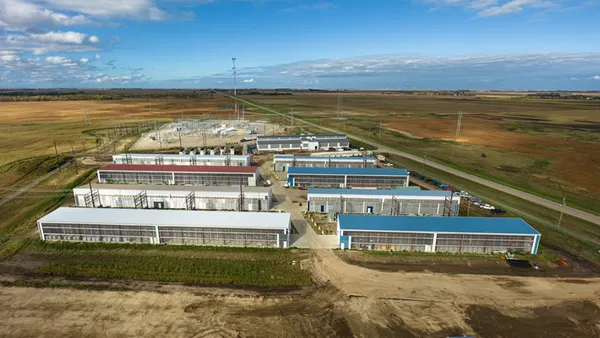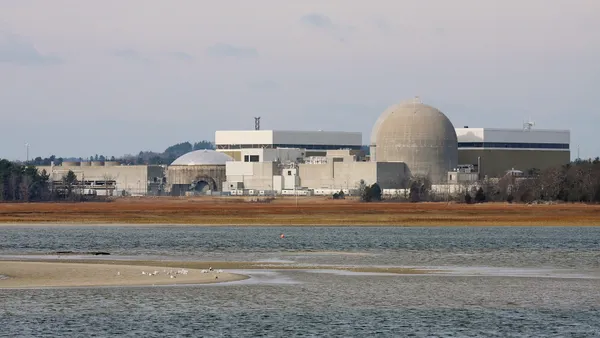Dive Brief:
- Illinois has issued a report examining the impact of closing three Exelon nuclear facilities, generally concluding the state could get by without the generation and that the closures could lead to a cleaner energy mix for the state, E&E Publishing reports.
- The report, prepared at the request of state lawmakers, examines a range of solutions from strictly market based scenarios to imposition of a carbon tax. Exelon has been lobbying state regulators and lawmakers in Illinois and New York to guarantee income from its nuclear fleet in the state, saying they would be unprofitable without higher electric rates.
- Exelon has indicated facilities in Byron, Clinton and the Quad Cities in Illinois are struggling to remain profitable and the could be shuttered, but the state is reliant on nuclear generation and lawmakers worry about reliability and pricing concerns.
Dive Insight:
Illinois leads the nation in producing nuclear power, generating approximately 90 billion KWh with 11 nuclear units. The state has six nuclear power stations licensed by the Nuclear Regulatory Commission
to operate for another 7 to 18 years.
But Exelon says three facilities are struggling to remain profitable against cheaper coal generation, and the company has indicated it is considering prematurely shuttering those units. Coal makes up about 43% of the state's power, while nuclear is responsible for roughly half the power sold by utilities and alternative retail electric suppliers in the state.
The report, prepared by several state agencies at the direction of lawmakers, considers a low carbon portfolio standard which would require wholesale purchasers of electricity to obtain specified percentages of their supply "from a broader class of zero carbon sources or sources with lower carbon intensity (CO2 emissions per kilowatt-hour) than that of fossil-fuel generation." That approach, the report found, could allow retail energy providers to demonstrate compliance via tradable credits."
The report defies simply characterization as it makes no specific recommendations and instead lays out an array of solutions. An overview released alongside the report said "the right energy policy has the potential to minimize cost increases, guarantee reliability, improve the environment, create and retain jobs and grow the Illinois economy."














